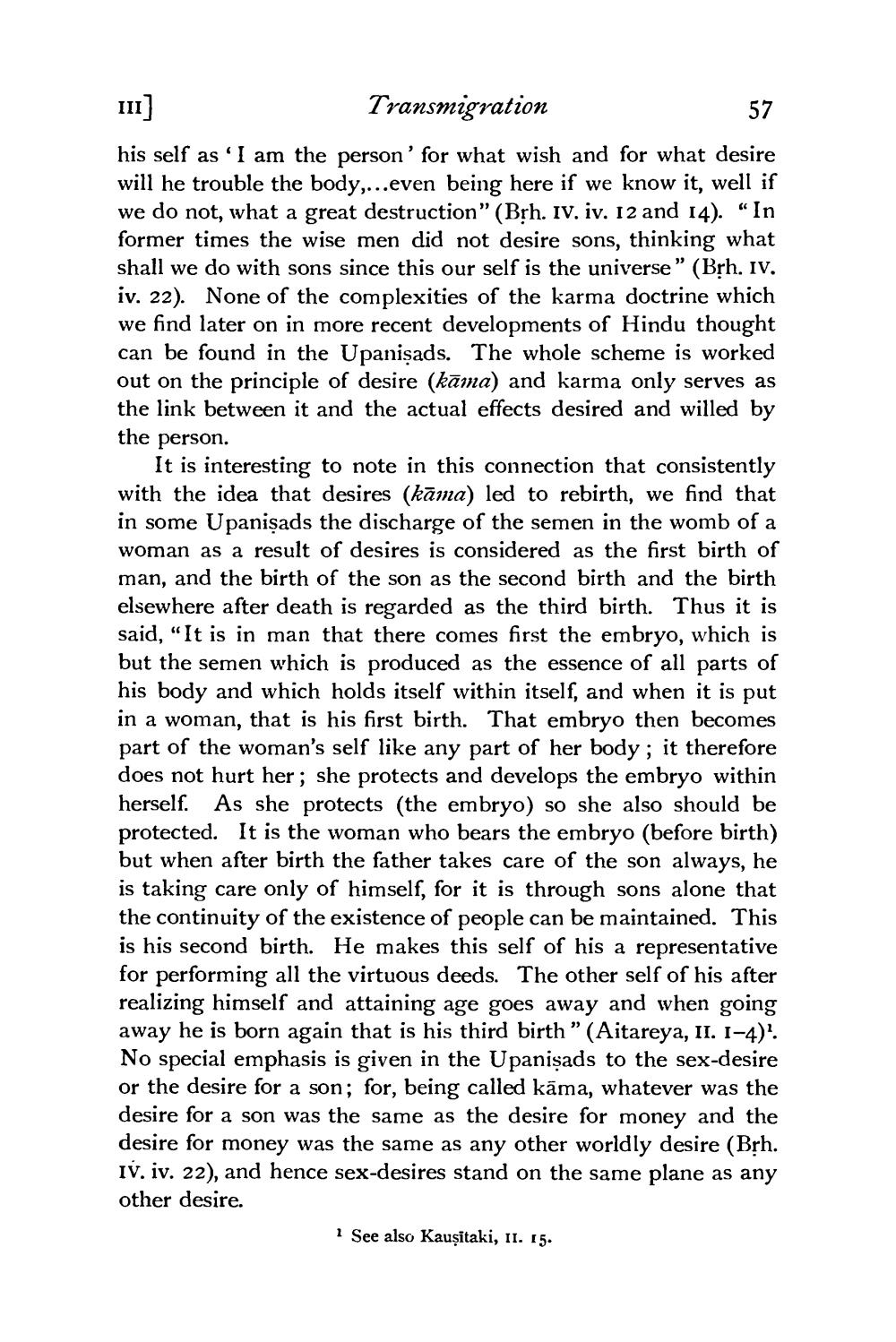________________
111] Transmigration
57 his self as I am the person' for what wish and for what desire will he trouble the body,...even being here if we know it, well if we do not, what a great destruction" (Brh. IV. iv. I2 and 14). "In former times the wise men did not desire sons, thinking what shall we do with sons since this our self is the universe" (Brh. IV. iv. 22). None of the complexities of the karma doctrine which we find later on in more recent developments of Hindu thought can be found in the Upanisads. The whole scheme is worked out on the principle of desire (kāma) and karma only serves as the link between it and the actual effects desired and willed by the person.
It is interesting to note in this connection that consistently with the idea that desires (kāma) led to rebirth, we find that in some Upanisads the discharge of the semen in the womb of a woman as a result of desires is considered as the first birth of man, and the birth of the son as the second birth and the birth elsewhere after death is regarded as the third birth. Thus it is said, "It is in man that there comes first the embryo, which is but the semen which is produced as the essence of all parts of his body and which holds itself within itself, and when it is put in a woman, that is his first birth. That embryo then becomes part of the woman's self like any part of her body; it therefore does not hurt her; she protects and develops the embryo within herself. As she protects (the embryo) so she also should be protected. It is the woman who bears the embryo (before birth) but when after birth the father takes care of the son always, he is taking care only of himself, for it is through sons alone that the continuity of the existence of people can be maintained. This is his second birth. He makes this self of his a representative for performing all the virtuous deeds. The other self of his after realizing himself and attaining age goes away and when going away he is born again that is his third birth” (Aitareya, II. 1-4)? No special emphasis is given in the Upanisads to the sex-desire or the desire for a son; for, being called kāma, whatever was the desire for a son was the same as the desire for money and the desire for money was the same as any other worldly desire (Brh. IV. iv. 22), and hence sex-desires stand on the same plane as any other desire.
I See also Kausitaki, 11. 15.




